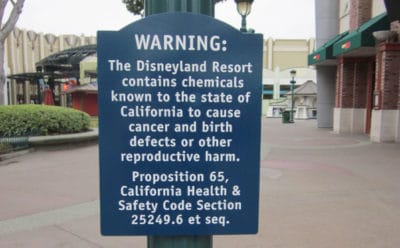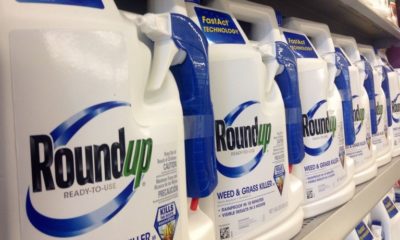
Last January, California’s Environmental Protection Agency issued a notice regarding their intent to add the chemical glyphosate the Proposition 65 list, prompting a legal battle with Ag powerhouse Monsanto. Glyphosate is the most widely used weed killer in the world, as well as the main ingredient in Monsanto’s flagship garden product Roundup. Roundup is used to treat over 250 types of crops in California, leader of agricultural production in the United States.
Proposition 65 refers to California’s 1986 Safe Drinking Water and Toxic Enforcement Act, which requires the state to publish a list of chemicals that may cause cancer, birth defects or reproductive harm. In turn, warnings must be posted on products, in workplaces, apartment buildings, public places, or anywhere these toxins are present. Prop 65 increases accountability for businesses and allows Californians to make informed decisions about their health and safety.

According to studies by the International Agency for Research on Cancer, glyphosate is carcinogenic. Monsanto subsequently sued California’s E.P.A., denied glyphosate as a carcinogen and produced industry-funded research in their defense. Monsanto attorney, Trenton Norris, said safety warnings on Roundup would drive customers away and hurt profits.
Emails unsealed in court reveal Monsanto was tipped off about the determination months before by E.P.A. deputy division director, Jess Rowland. What’s more, Rowland reportedly promised to deter a review of glyphosate by the Department of Health Human Services. In an email to Monsanto, Rowland allegedly referred to the task, stating “If I can kill this, I should get a medal”. The review never happened.
Another email uncovered during a litigation regarding claims that glyphosate exposure caused non-Hodgkin’s lymphoma, proves that Monsanto produced the scientific studies used to defend glyphosate. Internal emails imply plans to pay academics to sign off on their research. “We would be keeping the cost down by us doing the writing and they would just edit & sign their names so to speak,” executive William Heydens wrote. Monsanto denied these allegations in court, insisting the integrity of their research has not been compromised.

In the end, Monsanto lost the Prop 65 San Francisco court battle and their claims were dismissed as inviable. “I think it’s important that people hold Monsanto accountable when they say one thing and it’s completely contradicted by very frank internal documents,” said Timothy Litzenburg of Miller Firm, one of the law firms involved in the litigation.
Glyphosate is currently not restricted by the United States E.P.A., though it is classified as “low toxicity” and recommends people do not enter a field for 12 hours following treatment. In 2015, an estimated 220 million pounds of glyphosate were used in the United States.


